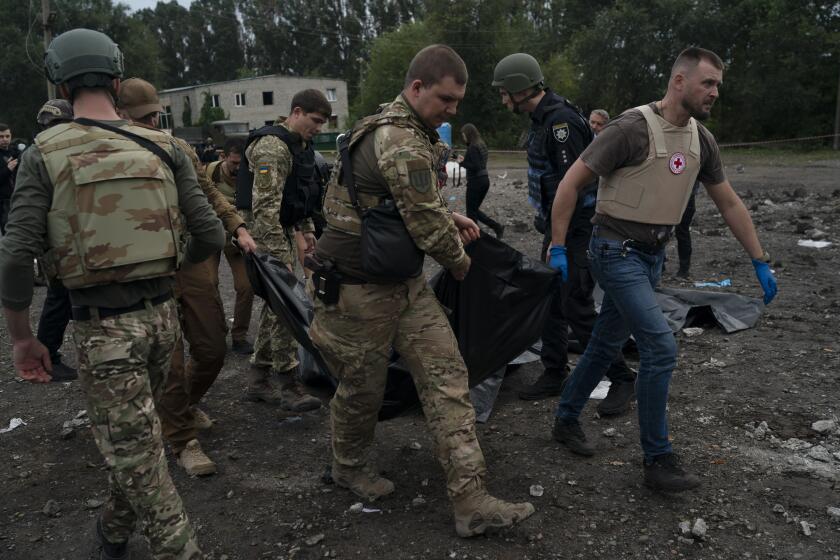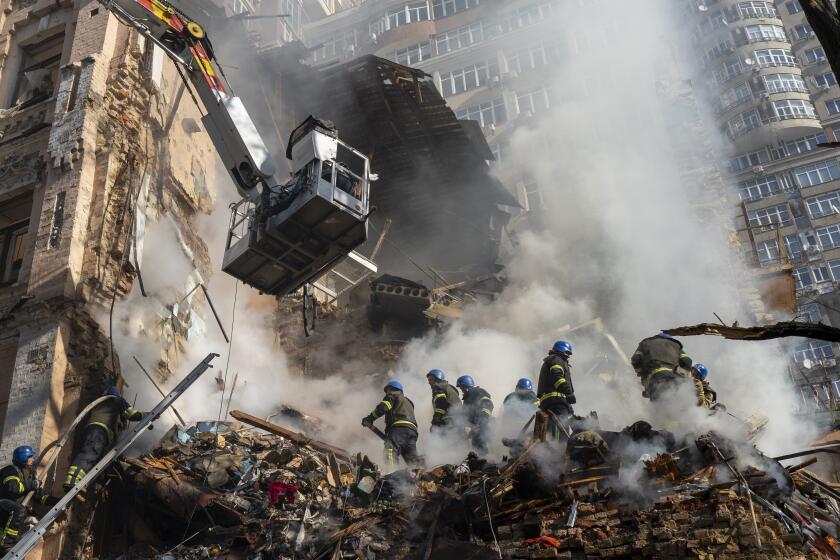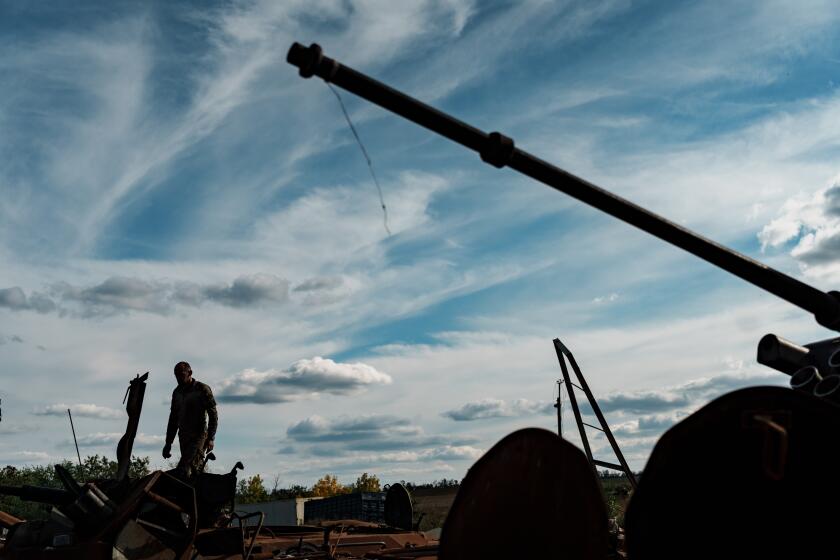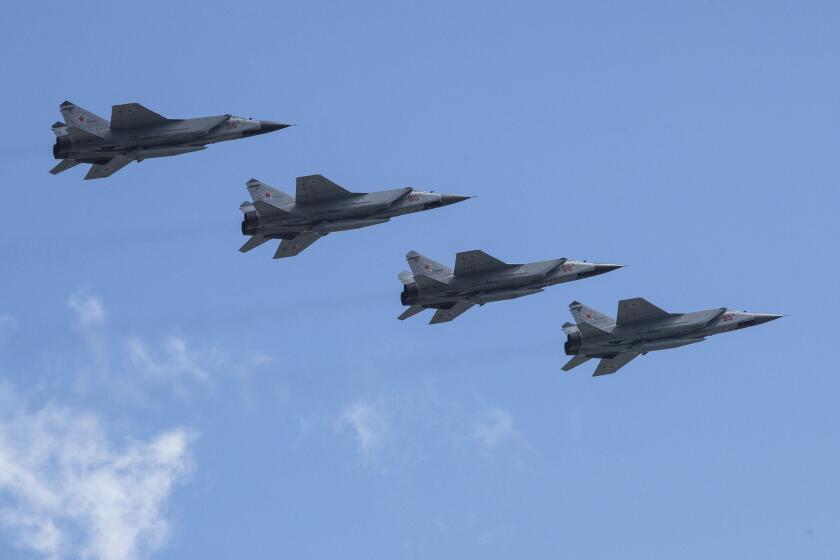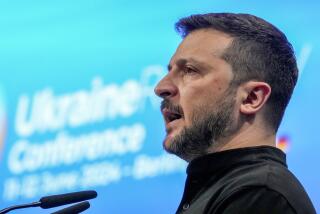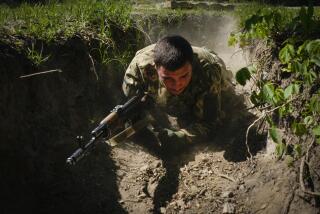Putin scrambles to boost weapons production for Ukraine war
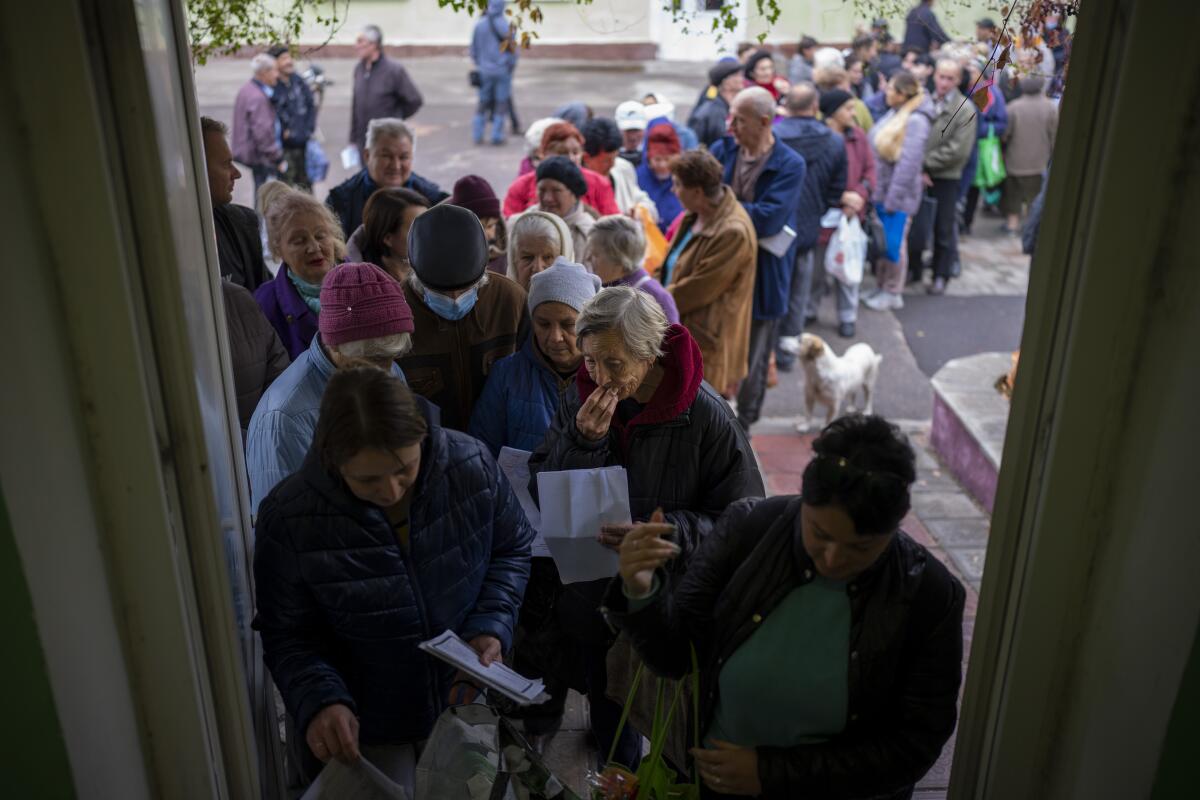
KYIV, Ukraine — Russian President Vladimir Putin, facing military production delays and mounting losses, on Tuesday urged his government to cut through bureaucracy to crank out enough weapons and supplies to feed the war in Ukraine, where a Western-armed counteroffensive has set back Russia’s forces.
In other developments, Ukrainian authorities asked citizens not to return home and further tax the country’s battered energy infrastructure, and Western countries considered how to rebuild Ukraine when the war ends.
The Russian military’s shortfalls in the eight-month war have been so pronounced that Putin had to create a structure to address them. On Tuesday, he chaired a new committee designed to accelerate the production and delivery of weapons and supplies for Russian troops, stressing the need to “gain higher tempo in all areas.”
Russian news reports have acknowledged that many of those called up under a mobilization of 300,000 reservists haven’t been provided with basic equipment, such as medical kits and flak jackets, and have had to find their own. Reports have suggested that Russian troops are increasingly forced to use old and sometimes unreliable equipment and that some of the newly mobilized troops are rushed to the front line with little training.
Last week, Putin tried to demonstrate that all is well by visiting a training site in Russia where he was shown well-equipped soldiers.
To substitute for scarce Russian-made long-range precision weapons, the country is likely to use a barrage of drones to try to penetrate Ukrainian air defenses, according to Britain’s Ministry of Defense. Russia’s “artillery ammunition is running low,” the British report said Tuesday.
The Washington-based Institute for the Study of War added that “the slower tempo of Russian air, missile and drone strikes possibly reflects decreasing missile and drone stockpiles and the strikes’ limited effectiveness of accomplishing Russian strategic military goals.”
Ukrainian forces have recently recaptured swaths of territory in northeast, east and south, sending Russian troops fleeing. But in ravaged towns, suffering doesn’t stop with occupation’s end.
Still, the Russian military has managed to inflict heavy damage and casualties in Ukraine, ruining homes, public buildings and the power grid. The World Bank estimates the damage to Ukraine so far at about
$350 billion.
Recent Russian attacks have focused largely on Ukraine’s energy facilities, especially those for electricity and transmission.
Electricity shortfalls are so severe that Ukrainian Deputy Prime Minister Iryna Vereshchuk on Tuesday asked citizens living abroad not to return this winter to avoid further strain on the power supply.
“We need to survive the winter, but unfortunately, the [electricity] networks will not survive,” Vereshchuk said on Ukrainian television. “We understand that the situation will only get worse, and this winter we need to survive.”
In Berlin, European Union leaders brought together experts to start work on a “new Marshall Plan” for the rebuilding of Ukraine — a reference to the U.S.-sponsored plan that helped revive Western European economies after World War II.
German Chancellor Olaf Scholz said the meeting aimed to discuss “how to ensure and how to sustain the financing of the recovery, reconstruction and modernization of Ukraine for years and decades to come.”
Drones, allegedly Iranian-made, are in use by Russia in its war against Ukraine, the latest example of how the Kremlin’s war forces governments to contend with a Cold War-style calculus.
Scholz, who co-hosted the meeting with European Commission President Ursula von der Leyen, said he was looking for “nothing less than creating a new Marshall Plan for the 21st century — a generational task that must begin now.”
On the diplomatic front, German President Frank-Walter Steinmeier, after meeting with Ukrainian President Volodymyr Zelensky on Tuesday in Kyiv, told reporters that his country will stand by Ukraine and support its people for as long as it takes, by helping to rebuild and by sending more weapons.
“Reconstruction is not waiting for the war to end. It must begin now,” Steinmeier said, adding that “not only is Germany helping with the reconstruction, but we’re also helping Ukraine to prevent the brutal destruction, to make sure that the population is protected in the best possible way.”
Rights groups say Moscow’s practice of transporting captured Ukrainian civilians to Russia is illegal under international law. Hundreds, perhaps thousands, have vanished from Russian-occupied areas.
He promised that Germany would immediately help rebuild destroyed towns and would send two more Medium Artillery Missile Systems and four PzH 2000 self-propelled howitzers.
In developments on the battlefront, Russian missiles set a gas station on fire late Tuesday in the south-central Ukrainian city of Dnipro, killing a pregnant woman in her car and the operator of a car wash and wounding at least three, Ukrainian news agencies reported.
In the southern city of Mykolaiv, residents lined up for water and essential supplies Tuesday as Ukrainian forces advanced on the nearby Russian-occupied city of Kherson.
Meanwhile, a Putin ally urged the Russian military to step up the pace and scale of Ukraine’s destruction.
Ramzan Kadyrov, the leader of Chechnya who has sent troops to fight in Ukraine, on Tuesday urged Moscow to wipe Ukrainian cities off the map in retaliation for the shelling of Russian territory.
Authorities in Russia’s border regions of Kursk and Belgorod have repeatedly reported Ukrainian shelling that has damaged infrastructure and residential buildings.
As Russia bombards Ukraine this week, military observers are wondering how many and what types of missiles Russia still has.
“Our response has been too weak,” Kadyrov said on his messaging app. “If a shell flies into our region, entire cities must be wiped off the face of the Earth so that they don’t ever think that they can fire in our direction.”
Kyiv wants to step up the fight but says it needs more war materiel.
“We need more weaponry; we need more ammunition to win this war,” Ukrainian Prime Minister Denis Shmyhal told reporters in Berlin. “We need tanks from our partners, from all of our partners; we need heavy armored vehicles; we need additional artillery units, howitzers.”
More to Read
Sign up for Essential California
The most important California stories and recommendations in your inbox every morning.
You may occasionally receive promotional content from the Los Angeles Times.
